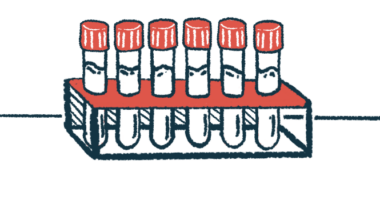What the Mentally Ill 20-Somethings Do

The insecurity hits when I least expect it.
I knew it would take me a while to adjust to post-grad life. I spent 20 years in school, eight of which were online. I didn’t have the social life people associate with college students living on campus. My life consisted of studying, more studying, and the occasional game of Dungeons & Dragons.
Post-grad life as a counselor-in-training is pretty cut and dry. Once you have your degree, you work for four years under the supervision of a full-fledged practitioner. Then, you have to pass your state’s licensing exam. Then, and only then, are you considered a therapist.
So, I started grad school with the understanding that the next decade or so of my life would belong to my profession. Some people can go from student to licensed practitioner in a little over five years, but with SMA, my body isn’t built for the nine-to-five, Monday through Friday life. I knew I’d have to take things slowly.
I had a plan. My brain likes plans, likes adhering to them. A decade is a long time, but I was going places. That was all I really cared about.
Then, things changed. My decision not to become a therapist wreaked havoc on my 10-year, 100-step plan. I was going to graduate in a little over a year; I no longer had to prepare for internships or licensure exams. I was more or less a free agent — and that terrified me.
I’m generally a self-aware person. It didn’t take me long to realize that graduating without a plan would kick my anxiety into overdrive. My mental health hinges on my level of productivity, so I approached post-grad life with a single-minded focus.
I needed to keep myself busy.
Then, 2020 happened, and the world went to hell in a handbasket.
I knew that post-grad life would be difficult. I knew I would feel insecure, aimless, uncertain, all the adjectives you associate with mentally ill 20-somethings. But I never could’ve anticipated how lost I’d feel, how thoroughly unmoored.
My dad tells me that I have enough on my plate. I don’t work full time — I don’t even work part time — but living with a chronic illness like SMA is no walk in the park. I’m not just “sick,” I’m in pain. I’m juggling everything from medical appointments to caregiving and treatments. I have a finite amount of energy, most of which goes to staying alive. What little I have left goes to things I love, like writing.
My dad tells me — in not so many words — to practice self-compassion. And he’s right. It’s not easy being a sick person in a healthy world. I want big things for myself, but there’s no point in letting my ambition run me into the ground.
Still, it’s hard. We grow up with these visions of adulthood — a partner, kids, a house in the suburbs with a dog and a vaguely competitive neighbor. We’re expected to chase the full-time job, the lifelong career, the formulaic education that ends with benefits and a pension. We’re taught that life isn’t life unless it looks like [insert stereotype here]. But life looks different for everyone.
Every day, I watch from the sidelines as people go about their lives. Meanwhile, I surf the internet. I write my book. I schedule appointments and wonder, idly, if my headaches are symptomatic of something else. I beat myself up, because I feel lazy, useless, a waste of space. When I tell this to my dad, he kisses my hair. Holds me tight. Reminds me, as he does once a month, that my life is hard. I have enough to worry about — I don’t need to pick up self-flagellation as a hobby.
Sometimes he gets through to me, sometimes he doesn’t. Sometimes I write columns like these as a reminder — to myself, yes, but also to you. I look to my friends, who are wiser than me, who see our never-ending loop of biological needs as evidence that mundanity is important. I look to the poets, who are also wiser than me, who write about a “cherishing so deep” that they’re left speechless.
I am grateful for their wisdom. Just as I am grateful for this brief moment of mundanity.
It is life. And it is blessed.
“For weeks now, driving, or dropping a bag of groceries in the street, the bag breaking, / I’ve been thinking: This is what the living do. And yesterday, hurrying along those / wobbly bricks in the Cambridge sidewalk, spilling my coffee down my wrist and sleeve, / I thought it again, and again later, when buying a hairbrush: This is it.” — Marie Howe, “What the Living Do”
***
Note: SMA News Today is strictly a news and information website about the disease. It does not provide medical advice, diagnosis, or treatment. This content is not intended to be a substitute for professional medical advice, diagnosis, or treatment. Always seek the advice of your physician or other qualified health provider with any questions you may have regarding a medical condition. Never disregard professional medical advice or delay in seeking it because of something you have read on this website. The opinions expressed in this column are not those of SMA News Today, or its parent company, Bionews, and are intended to spark discussion about issues pertaining to spinal muscular atrophy.









Leave a comment
Fill in the required fields to post. Your email address will not be published.